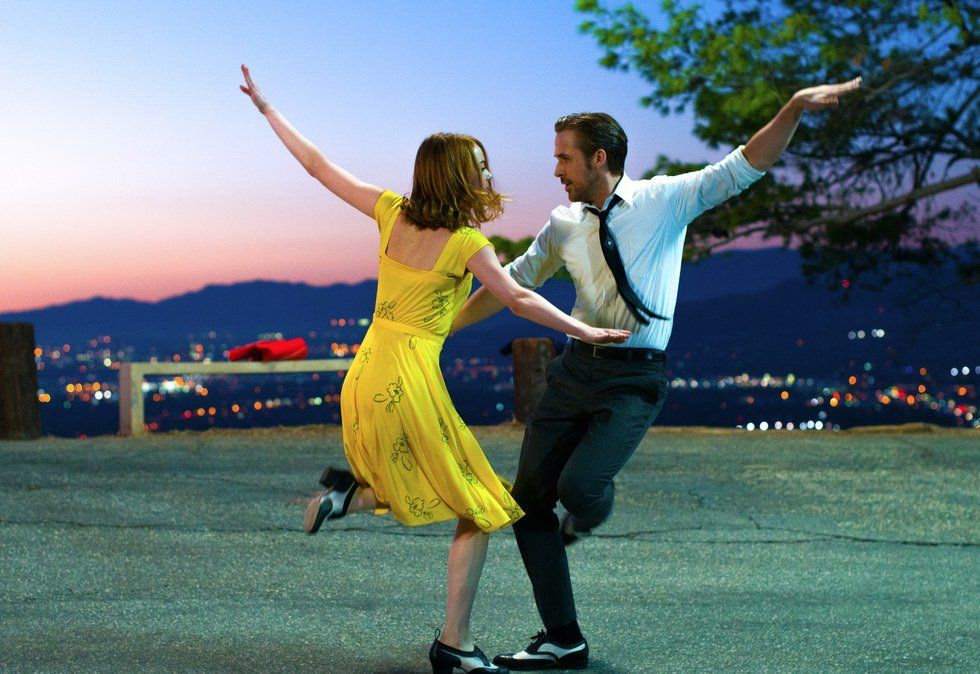The one movie that everyone has been talking about lately is the musical La La Land.
When it had first premiered at the Venice Film Festival in early September, and subsequently the Telluride Film Festival and the Toronto International Film Festival (TIFF), critics and festivalgoers fell head over heels in love with the film, calling it one of the best of the year, and a serious contender for the Best Picture Oscar at the upcoming 89th Academy Awards. This sentiment has been felt by moviegoers as well, with the film breaking box office records, and staying in the weekend top 10, in spite of the film being in less than 2,000 theaters as of this writing. Meanwhile, the film made even more headlines when the Hollywood Foreign Press Association showered the movie with love at the 74th Golden Globe Awards, as the film won a Golden Globe in each of the 7 categories it was nominated in, setting a record for the most Golden Globes won by a single film, including Best Picture, Best Actor, and Best Actress.
This type of praise has been insane and, in the opinion of this writer, completely warranted. But this kind of positive attention has unfortunately led to a small, but vocal part of the community, complaining that the film is a "white savior" narrative. Never mind the fact that the former is based on weak arguments that are easily debunked when watching the film, as shown through the interactions between the two characters portrayed by Ryan Gosling and John Legend, what La La Land is facing is a common issue many critically and financially successful films inevitably face; something I like to call "Popular Backlash".
While some movies had faced this before, like the 2008 film The Dark Knight, the first time that I noticed "Popular Backlash" was with 2013's Iron Man 3. The film isn't some spectacular masterpiece, and there are some definite issues I have with some elements in the screenplay, but it overall worked as an enjoyable action blockbuster. However, in spite of its favorable reception, there was still backlash against the film, most notably with the character of The Mandarin, who deviated so far from his character in the comics that it led to a humongous uproar from Iron Man fans for apparently disgracing the legacy of the original character-- even though as a film, the character worked just fine in his role. This would later continue with films starting out as well-liked, but out of the blue getting criticized for supposedly having stupid characters (Frozen), completely copying the original film from the franchise (Star Wars: The Force Awakens), or being too annoying (Deadpool).
Now I'm aware that there are plenty of people who dislike the films mentioned and many others for perfectly valid reasons. No film is perfect, and no film is universally loved or despised. However, there's an interesting connection that all of the films mentioned above have; each film got huge numbers at the box office. Each film got positive reception from critics and audiences about how memorable it was, to the point of oversaturation in conversation and mass media.
Again, while it's unfair to generalize everyone disliking these films, it still seems rather likely that a lot of people that try to bash these films a couple of weeks after they are released nationwide only seem to be doing so to stray from the popular opinion just to get attention. It's a shame because this type of criticism really only hinders any interesting criticism and hurts the people who actually disliked the film for valid reasons. Hopefully this type of "Popular Backlash" won't happen to films coming out later this year, like Guardians of the Galaxy Vol. 2 or Star Wars Episode VIII: The Last Jedi, and we will be able to talk about a film without bandwagoning.




















